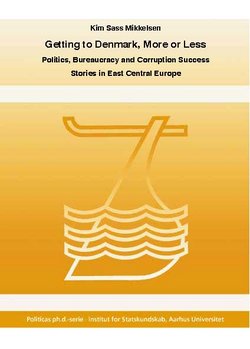Kim Sass Mikkelsen
Getting to Denmark More or Less. Politics, Bureaucracy and Corruption Success Stories in East Central Europe

Corruption has been a serious concern in East Central Europe in the first two decades after communism collapsed. Yet, the problem has not been equally serious everywhere. Estonia and Slovenia have emerged as success stories, substantially limiting corruption in their central administrations, whereas the remainder of the region’s countries have not. This dissertation examines why this divergence has occurred. It argues that the development of bureaucracies has been central, and that politics has shaped the design and operation of bureaucracies. Success stories have emerged where governments initiated, implemented, and sustained public sector reforms due to a combination of robust political competition and the absence of polarised government alternations, supported by independent judiciaries, reasonably high public sector wages, and a well-educated public sector recruitment pool. By contrast, success stories have failed to emerge where a lack of robust political competition has permitted governments to avoid or stall reform; or where polarised government alternations between robust competitors have made changing governments mistrust their bureaucracy and consequently have prompted them to undermine its scope, capacity, or independence. The dissertation examines these arguments empirically using fuzzy-set Qualitative Comparative Analysis, mixed with case studies of Estonia, Slovakia, and Poland to test the arguments’ mechanisms.
Not available for download
![]() Ophavsretten tilhører Politica. Materialet må ikke bruges eller distribueres i kommercielt øjemed.
Ophavsretten tilhører Politica. Materialet må ikke bruges eller distribueres i kommercielt øjemed.